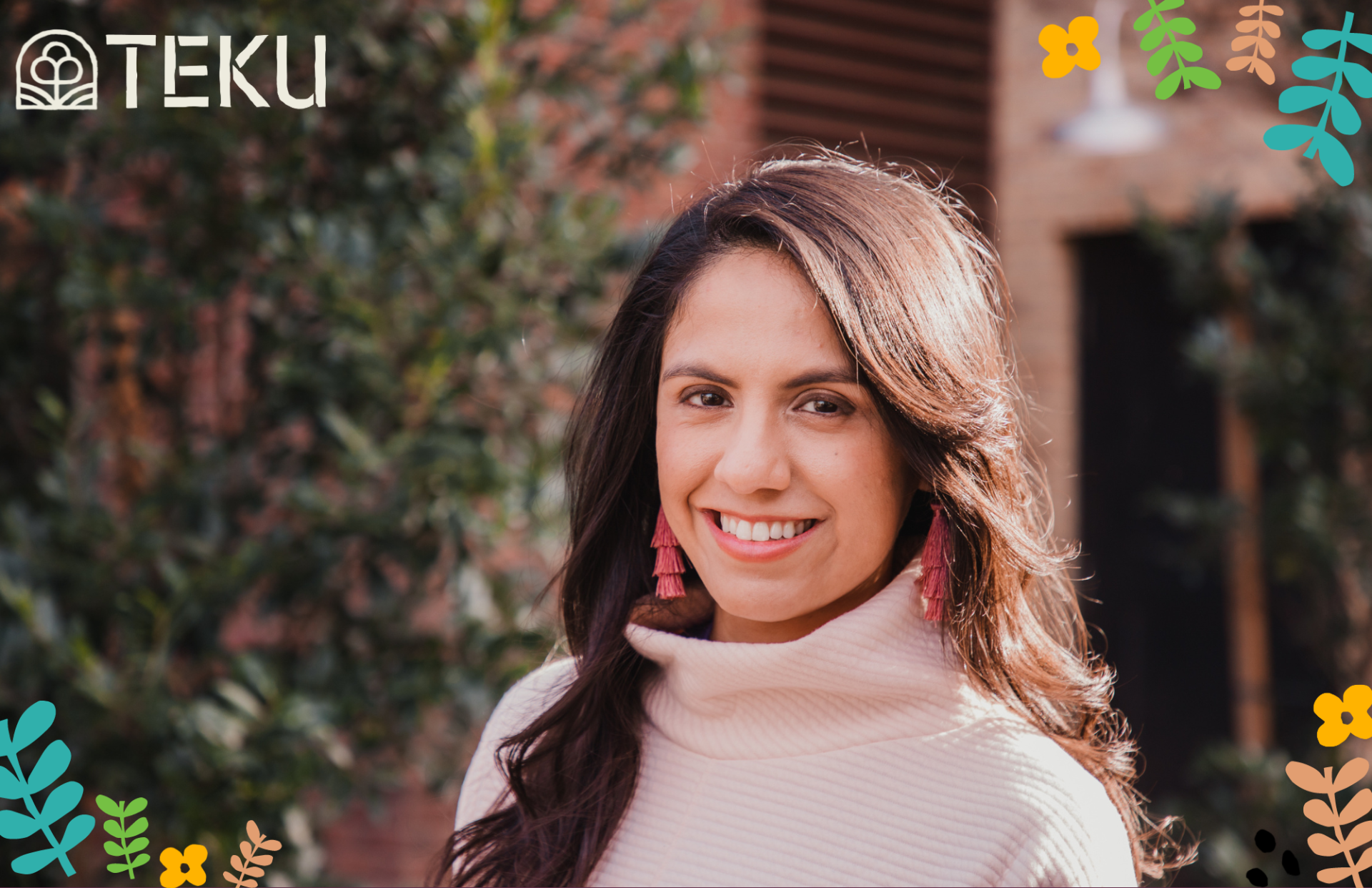
Why I Created Teku
May 30
/
Barbara Robles-Ramamurthy

Living in Mexico as a young girl, I don’t recall having a “dream.” Asking children what they want to grow up was not something I recall from my childhood. I struggle to determine whether I see this as freedom to not need to name our dream vs the lack of a dream for many.
As an immigrant child, learning English as a second language, while processing the death of my grandmother who navigated cancer treatment, I somehow found myself thriving. Praise from teachers, high grades, then later on, scholarships to attend college and medical school, set me on a quick road to becoming a physician. Throughout this journey, I recognized two things. One was my love for working with children, particularly those with disabilities or differences not accepted by the world. The other was my love for community, something that was not offered in clinical spaces.
My path into child psychiatry became another clear road. Mentors, mostly women of color, supported my journey that was full of ups and downs. My resume lacked many of the skills and experiences most of my classmates had. Yet somehow, I persevered.
So far you’ve heard about my many accomplishments and times of strength, as I have left out important pieces of this story. Knowing what I now know, it is clear to me that I have experienced anxiety since I was a child. It is also clear to me that I likely developed depression in college, which recurred during medical school and again during my psychiatric training. Treatment, both medications and therapy, has been immensely helpful. Yet, the journey towards health and well-being did not feel complete.
The current medical model requires that patients either 1) Complete a 4-12 week course of therapy or 2) commit to at least one year (and often many years) of psychotherapy. Medications often become the must-go-to intervention due to the challenges we experience in accessing and engaging with these therapeutic models of care. I have now been in therapy for years and although it has been tremendously beneficial, my healing journey is still not complete.
As I developed an awareness and expertise into health equity, and how many of our communities (ie Latinos, Black communities, Deaf and hard of hearing, LGBTQ+, legally-impacted individuals, immigrants and many others) are left out of our current mental health system, I realized there was a lot more we need to do. Research and statistics paint a painful reality telling us that the way we are currently set up to offer mental health services is not meaningfully supporting most people and that this system is not expected to change anytime soon. Thankfully, I have also learned that there are many others who have been researching, developing and implementing mental health support programs that aim to reduce the gaps in mental health care and create more community-grounded mechanisms to expand the reach of mental health care into our communities.
Some of these programs have a strong evidence base showing the impactful benefit they offer to those struggling with mental health issues or even as prevention efforts. Programs like peer to peer support, credible messengers, or community health workers have been proven to be helpful yet are not meaningfully implemented throughout clinical settings.
Teku has a vision to create meaningful collaborations and partnerships across sectors to make these support services more easily accessible, particularly for communities often overlooked or systematically excluded by traditional care models. By pairing community wisdom and strength with evidence-based, clinician-led educational material, we can promote universal prevention efforts to promote child and family mental health AND also complement existing services to offer additional layers of support and engagement.
As an immigrant child, learning English as a second language, while processing the death of my grandmother who navigated cancer treatment, I somehow found myself thriving. Praise from teachers, high grades, then later on, scholarships to attend college and medical school, set me on a quick road to becoming a physician. Throughout this journey, I recognized two things. One was my love for working with children, particularly those with disabilities or differences not accepted by the world. The other was my love for community, something that was not offered in clinical spaces.
My path into child psychiatry became another clear road. Mentors, mostly women of color, supported my journey that was full of ups and downs. My resume lacked many of the skills and experiences most of my classmates had. Yet somehow, I persevered.
So far you’ve heard about my many accomplishments and times of strength, as I have left out important pieces of this story. Knowing what I now know, it is clear to me that I have experienced anxiety since I was a child. It is also clear to me that I likely developed depression in college, which recurred during medical school and again during my psychiatric training. Treatment, both medications and therapy, has been immensely helpful. Yet, the journey towards health and well-being did not feel complete.
The current medical model requires that patients either 1) Complete a 4-12 week course of therapy or 2) commit to at least one year (and often many years) of psychotherapy. Medications often become the must-go-to intervention due to the challenges we experience in accessing and engaging with these therapeutic models of care. I have now been in therapy for years and although it has been tremendously beneficial, my healing journey is still not complete.
As I developed an awareness and expertise into health equity, and how many of our communities (ie Latinos, Black communities, Deaf and hard of hearing, LGBTQ+, legally-impacted individuals, immigrants and many others) are left out of our current mental health system, I realized there was a lot more we need to do. Research and statistics paint a painful reality telling us that the way we are currently set up to offer mental health services is not meaningfully supporting most people and that this system is not expected to change anytime soon. Thankfully, I have also learned that there are many others who have been researching, developing and implementing mental health support programs that aim to reduce the gaps in mental health care and create more community-grounded mechanisms to expand the reach of mental health care into our communities.
Some of these programs have a strong evidence base showing the impactful benefit they offer to those struggling with mental health issues or even as prevention efforts. Programs like peer to peer support, credible messengers, or community health workers have been proven to be helpful yet are not meaningfully implemented throughout clinical settings.
Teku has a vision to create meaningful collaborations and partnerships across sectors to make these support services more easily accessible, particularly for communities often overlooked or systematically excluded by traditional care models. By pairing community wisdom and strength with evidence-based, clinician-led educational material, we can promote universal prevention efforts to promote child and family mental health AND also complement existing services to offer additional layers of support and engagement.
"Teku has a vision to create meaningful collaborations and partnerships across sectors to make these support services more easily accessible, particularly for communities often overlooked or systematically excluded by traditional care models"
We have plenty of research showing that many of the chronic health conditions many of us suffer from, such as high blood pressure, diabetes, depression, anxiety, can be prevented or their severity reduced through the use of non-clinical, lifestyle changes. These changes sound easy but are very challenging to implement, especially when our cities and communities are not set up to promote healthy behaviors. Clinical services are meant to treat an illness, which is an important need in our human experience. Yet prevention services benefit ALL OF US, whether we have an illness or not.
Teku
-
Home
-
About
-
Our work
-
Contact us
-
Communities
-
Sign in
-
Blog
Copyright © 2023 TEKU Inc
